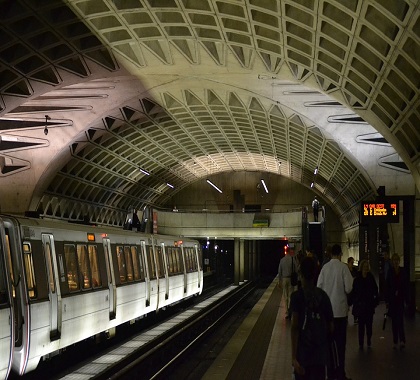The Washington, DC City Council is proposing raising taxes on ridesharing services and alcohol to increase funding for the Washington Metropolitan Area Transit Authority (WMATA).
The city government’s 2019 budget dedicates $178.5 million to the transit system, including revenue from tax hikes on alcohol and ridesharing services such as Uber and Lyft to help fund the city’s transit system.
If approved, levies on ridesharing services would go up from 1 percent of gross receipts to 6 percent, and excise taxes on liquor would increase from 10 to 10.25 percent.
The budget ordinance, including the tax increases, was sent to Mayor Muriel Bowser for consideration on May 29.
‘Scrap the System’
Cato Institute senior fellow Randal O’Toole recommends getting rid of WMATA and starting over with a bus-based transportation system.
“We should just scrap the system and replace it with buses,” O’Toole said. “Buses can move more people per hour than trains, and they can do it a lot cheaper and a lot faster than trains. All the advantages that trains are supposed to have are just imaginary.”
Suggests Cutting Costs
Emily Hamilton, a research fellow with the State and Local Policy Project at the Mercatus Center at George Mason University, says WMATA should concentrate on reducing costs and improving service.
“Rather than raising revenue, WMATA should focus on providing an improved culture of accountability to passengers and reducing its operating costs, which are higher than those for transit systems in Chicago, Philadelphia, and many European subway systems,” Hamilton said. “In DC, labor costs make up 70 percent of the system’s operating costs.”
Hamilton says WMATA could further reduce its operational costs by transitioning to a driverless system.
“Rather than raising funds to allow WMATA’s current poor service to limp along, the system should be focusing on making onetime capital upgrades that would allow it to be a driverless system, reducing a substantial portion of its ongoing labor needs,” Hamilton said.




